About Gaudenzia New Journey
Welcome to Gaudenzia New Journey. We offer a variety of services to help those struggling with addiction. We offer alcohol rehab, dual diagnosis, opioid addiction, adult and young adult programs, men’s and women’s rehab, and aftercare support. We also offer cognitive behavioral therapy, experiential therapy, family therapy, group therapy, individual therapy, and trauma therapy. We are here to help you on your journey to recovery. Thank you for choosing us.
Addiction Treatment Programs
Alcohol Rehab
The best way to achieve recovery from alcohol use disorder is by completing a high-quality alcohol rehab in Delaware and applying the tools you learn to stay in sobriety. High-quality treatment lays a foundation for sobriety and helps prevent relapses by giving you new ways of thinking, better coping skills, and a better understanding of key life skills such as emotional regulation and communication.
Dual Diagnosis
For many people in Delaware, dual diagnosis treatment that addresses mental health and substance use is essential to their recovery. A mental health diagnosis can feed into an addiction, making both worse. In a dual diagnosis program, these concerns are addressed along with typical evidence-based detox, inpatient treatment, and outpatient care.
Opioid Addiction
Facilities that offer substance use treatment in Delaware can give you the skills and tools you need to break free from opioid addiction. Whether you need detox, inpatient treatment, or outpatient care, an opioid program will help you build a new lifestyle based on healthy coping mechanisms, better relationships, and a new way of thinking about life.
Adult Program
Adult program programs in Delaware address the specific needs of this stage of life. Adults often have challenges related to their careers, raising a family, and handling responsibilities. These concerns are addressed during evidence-based detox, inpatient treatment, and outpatient care.
Men's Rehab
A men’s rehab in Delaware can provide every level of care while addressing the unique needs of men. Men often have questions about building their careers, being a father, and having healthy communication styles. These concerns are addressed along with typical evidence-based detox, inpatient treatment, and outpatient care.
Women's Rehab
Choosing a women’s rehab in Delaware can be a great way to manage gender-specific issues while also addressing substance use. Women often have questions about building their careers, raising children, and building healthy relationships. These concerns are addressed along with typical evidence-based detox, inpatient treatment, and outpatient care.
Young Adult Rehab
A young adult rehab in Delaware addresses the recovery needs of clients in this life stage and gives them the tools they need to succeed. Young adults often have questions about starting their careers, having a family, and living independently without overspending. These concerns are addressed along with typical evidence-based detox, inpatient treatment, and outpatient care.
Insurance Coverage
Medicaid
If you qualify, Medicaid can help pay for some or all of the costs of rehab in Deleware. You’ll want to contact treatment centers to find out which ones accept Medicaid and make sure you get the right level of care, such as detox, inpatient, or outpatient treatment.
Private insurance
When you’re planning to use private insurance to pay for drug rehab in Deleware, there are a few details to keep in mind. Centers that are in-network with your plan will be much more affordable, and you’ll want to check on out-of-pocket costs like copays or deductibles. Contact your insurer to get more information about paying for the care you need.
Self-pay options
Self-pay in Deleware allows you to pay the cost of rehab treatment yourself, by getting a medical loan, writing a check, or having money sent electronically to the center. Check into the fee structure, which may vary depending on the level of care.
Medicare
One way to pay for rehab in Deleware is to use Medicare. You’ll want to find out what treatment centers accept your plan and get the details on what out-of-pocket costs you might have, such as deductibles and copays.
Financial aid
If you qualify, financial aid programs can help pay for some or all of the costs of rehab in Deleware. Getting a scholarship or grant can help you pay for any level of treatment, from detox to inpatient to outpatient care.
Sliding scale payment assistance
If you’re looking for ways to pay for rehab in Delaware, consider finding a program with a sliding scale payment plan. With a sliding scale, you’ll pay less depending on your income and family size. This makes it much less stressful to get the care you need.
Levels of Care
- 1
Inpatient Rehab
If you’re starting out on your recovery journey, inpatient treatment can give you the focused, supportive environment you need to build a solid foundation. Inpatient treatment programs generally last 30 to 90 days and include counseling and classes on emotional regulation, coping strategies, and other vital life skills.
- 2
Aftercare Support
Aftercare in Delaware will help you connect with resources and support from others so you can encourage each other over the long term. Relapse prevention is a lifelong project, and having aftercare support like sober housing, recovery-focused activities, and a place to build healthy friendships can make all the difference.
- 3
Sober Living Homes
During sober living in Delaware, clients live in a safe, substance-free home and can build relationships with others in recovery. Relapse prevention is a lifelong project, and having support like sober living, recovery-focused activities, and a place to build healthy friendships can make all the difference.
Therapies
Cognitive Behavior Therapy
Receiving cognitive behavioral therapy in Delaware helps you identify your automatic interpretations of situations and how that impacts your behavior. As you learn to identify thought distortions, your confidence in your ability to manage a wide variety of situations will grow. You’ll have the tools you need to address problems and manage triggers in a healthy way.
Experiential Therapy
Experiential therapy allows you to use activities such as art and music to express your emotions and work through trauma. Experiential therapy is a complement to traditional evidence-based treatment approaches and may be a part of inpatient treatment, outpatient care, or both.
Family Therapy
If you struggle with addiction in Delaware, it’s common to have broken and dysfunctional family relationships. Family therapy can help you address those issues and find support from your loved ones. Substance use treatment includes detox, inpatient treatment, and outpatient care, and family therapy may be a part of each of these stages. The goal is to help families address past events and broken relationships and develop healthy ways of relating to each other.
Group Therapy
If you struggle with addiction in Delaware, it’s common to feel like no one understands you. Group therapy can help you find common perspectives and support. Sessions generally last 60 to 90 minutes and give you a chance to discover others’ experiences, hear about the impact of substance use, and learn important new life skills.
Individual Therapy
In Delaware, individual therapy allows you to work one-on-one with a professional to address your past experiences and substance use triggers. This support and accountability helps you establish recovery. During individual therapy, you have the freedom and confidentiality to share personal issues and past experiences that may impact your substance use. Your therapist will help you work through those concerns and develop new ways of handling them.
Trauma Therapy
When you’ve experienced trauma, it’s natural to try to protect yourself from further harm. Trauma-informed therapy in Delaware can help you see how substance use is connected to your past experiences and how you can learn to care for yourself in healthier ways. Because trauma can be a significant trigger for substance use, trauma-informed therapy will help you understand what happened to you, realize that it was wrong, and create a healthier way of relating to that memory and the emotions you feel.
Accreditations
Location
Contact Gaudenzia New Journey
Top Drug Rehab Centers in Delaware
-
 Delaware
DelawareMeadowWood Behavioral Health Hospital
575 South Dupont Highway New Castle, Delaware 19720
-
 Delaware
DelawareConnections Community Support Programs Newark
1423 Capitol Trail Polly Drummond Plz Newark, Delaware 19711
-
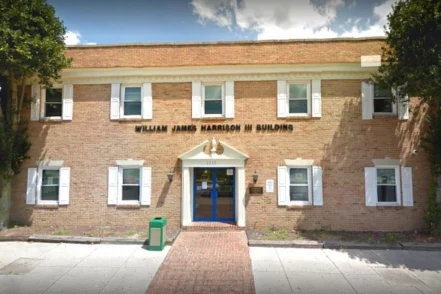 Delaware
DelawareBrandywine Counseling and Community Services Lancaster Avenue
2713 Lancaster Avenue Wilmington, Delaware 19805
-
 Delaware
DelawareTRIAD Addiction Recovery Services
1104 North Adams Street Wilmington, Delaware 19801
-
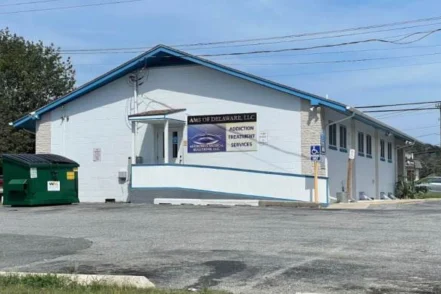 Delaware
DelawareAMS of Delaware
20576 Coastal Highway, Suite 101 Rehoboth Beach, Delaware 19971
-
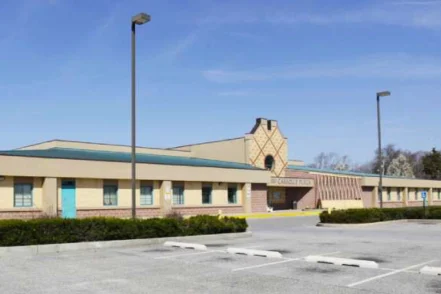 Delaware
DelawareConnections CSP Dover
1114 South Dupont Highway Dover, Delaware 19901
-
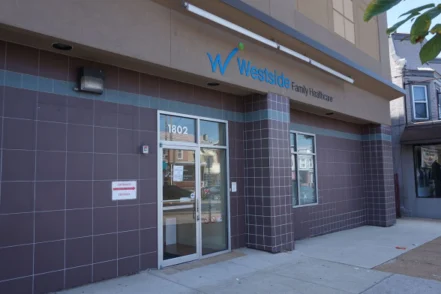 Delaware
DelawareWestside Family Healthcare
1802 West 4Th Street Wilmington, Delaware 19805
-
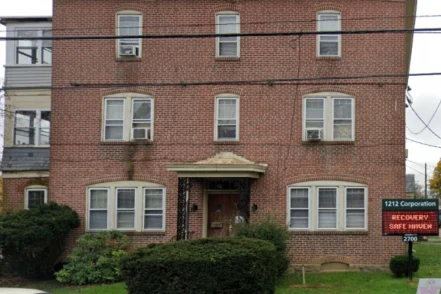 Delaware
DelawareNET Centers
3315 Kirkwood Highway Wilmington, Delaware 19808
-
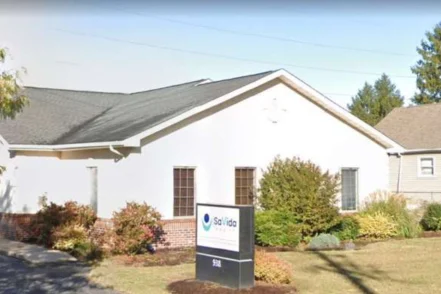 Delaware
DelawareSaVida Health Dover
983 S Bradford St Dover, Delaware 19904
-
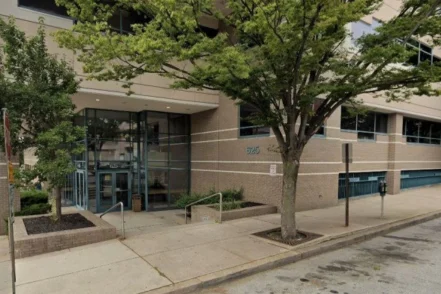 Delaware
DelawareSODAT Delaware Wilmington
625 North Orange Street Wilmington, Delaware 19801

